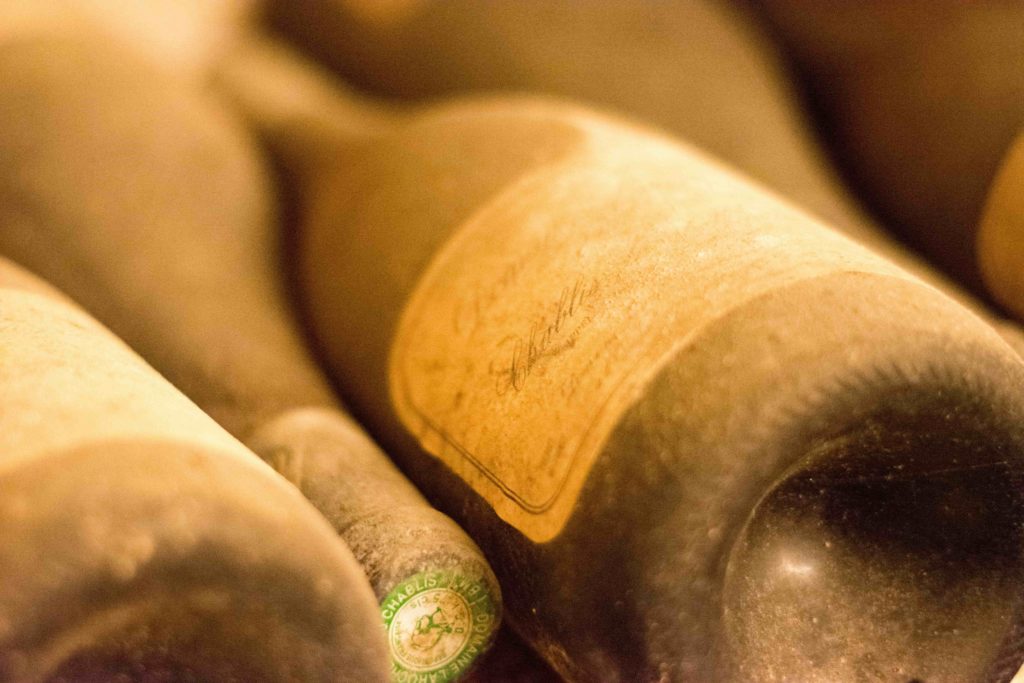John 2:1-11 – The Beginning of Signs
Overview
Our text tells the story of the beginning of signs. Jesus took an ordinary occasion, a wedding, as an opportunity to act. The need was for wine. He worked a miracle to provide the wine. The miracle was also a sign. In this message we discuss:
- The occasion of the miracle,
- The need for a miracle,
- The performance of the miracle, and
- the significance of the miracle.
This story, now as then, should challenge us to believe in the Lord and to give Him glory.
Introduction
1. Your Need
Many of you face difficult circumstances today. Perhaps you have said, It will take a miracle to get me through my situation. Without something very unusual taking place, you wonder if you will make it. With that in mind, let’s follow Jesus from Judea to Cana of Galilee.
2. Our Text
 It was very early in the ministry of Jesus. In Judea He had enlisted these five disciples Andrew, Peter, Philip, Nathanael, and apparently John. John (John 1:35-40) does not name himself, but is commonly thought to be one of the two who first turned to Jesus. Together, Jesus and the disciples had accepted an invitation to a wedding in Cana of Galilee. We read about it in John 2:1-11 (New International Version:
It was very early in the ministry of Jesus. In Judea He had enlisted these five disciples Andrew, Peter, Philip, Nathanael, and apparently John. John (John 1:35-40) does not name himself, but is commonly thought to be one of the two who first turned to Jesus. Together, Jesus and the disciples had accepted an invitation to a wedding in Cana of Galilee. We read about it in John 2:1-11 (New International Version:
‘On the third day a wedding took place at Cana in Galilee. Jesus’ mother was there, and Jesus and his disciples had also been invited to the wedding. When the wine was gone, Jesus’ mother said to him, “They have no more wine.”
‘“Woman, why do you involve me?” Jesus replied. “My hour has not yet come.”
‘His mother said to the servants, “Do whatever he tells you.”
‘Nearby stood six stone water jars, the kind used by the Jews for ceremonial washing, each holding from twenty to thirty gallons.
‘Jesus said to the servants, “Fill the jars with water”; so they filled them to the brim.
 ‘Then he told them, “Now draw some out and take it to the master of the banquet.”
‘Then he told them, “Now draw some out and take it to the master of the banquet.”
‘They did so, and the master of the banquet tasted the water that had been turned into wine. He did not realize where it had come from, though the servants who had drawn the water knew. Then he called the bridegroom aside and said, “Everyone brings out the choice wine first and then the cheaper wine after the guests have had too much to drink; but you have saved the best till now.”
‘What Jesus did here in Cana of Galilee was the first of the signs through which he revealed his glory; and his disciples believed in him.’
3. Preview
This is the story of the beginning of miracles. We will discuss the wedding as an ordinary occasion that led to a miracle. Then, we’ll present the need for a miracle, the performance of the miracle, and the significance of the miracle. This story, now as then, should challenge us to believe in the Lord and to give Him glory.
I. The Occasion of the Miracle
1. The Setting
For a few moments, let’s focus our attention on verses 1-2. These verses give us the setting of our story.
‘On the third day a wedding took place at Cana in Galilee. Jesus’ mother was there, and Jesus and his disciples had also been invited to the wedding.’
a. The Location
A wedding was the occasion for this story. The wedding celebration took place in Cana of Galilee. There were several towns in Galilee called Cana, but Kephar Kenna is usually accepted as the location. Kephar Kenna was about 3.5 miles from Nazareth where Jesus spent His boyhood years. It was the home of Nathanael (John 2:12) and the nobleman (John 4:46).
b. The People
Jesus and His disciples were invited. They had to make the journey from Judea to Cana. This took perhaps two days. Mary, the mother of Jesus was there. It may be that Joseph was already dead. She obviously was a friend of the family. At least she was close enough to the family to get involved in the administration of the wedding.
2. Application
 The thing that impresses me most about this story is that the events took place in rather ordinary circumstances. Many of the great truths Jesus taught and the miracles He worked took place sort of on the way. This event was not planned by the wedding party to be a stage for His activity. Jesus was simply engaged in life and met a need.
The thing that impresses me most about this story is that the events took place in rather ordinary circumstances. Many of the great truths Jesus taught and the miracles He worked took place sort of on the way. This event was not planned by the wedding party to be a stage for His activity. Jesus was simply engaged in life and met a need.
Sometime ago, Brian Williams was commenting for NBC on the George W. Bush entourage. They were boarding a chartered flight. Brian Williams was talking with an NBC reporter who was with the Bush campaign. Governor Bush came over to the reporter to get him to board the plane. This resulted in an impromptu interview. The interviewers were surprised that they would get this interview. Most political interviews are well-planned events. This interview happened on the way.
On a much higher level, the Son of God is ever present. He meets with us on an impromptu basis at the point of our need. He is with us in the office, in the marketplace, on the golf course, while we travel, while at home taking care of the children, or while shopping for groceries. When needs arise, He is present. We do not have to set up an appointment to see him. He makes His presence known on the way.
This is very encouraging to us as needy people, but we must learn from this for our ministries as well. As ministers of the gospel and soldiers of the cross, we need to be ready to meet need. We may be confronted with need at any time. We must be prepared at all time to speak for Jesus. We must be willing to interrupt a schedule to meet the need before us. Otherwise the need might not be met.
II. The Need for a Miracle
Now, we have the very interesting exchange between Jesus and His mother, Mary. This is filled with meaning for us.
‘When the wine was gone, Jesus’ mother said to him, “They have no more wine.”
‘“Woman, why do you involve me?” Jesus replied. “My hour has not yet come.”
‘His mother said to the servants, “Do whatever he tells you.”’
1. Mary
Mary, the mother of Jesus, came to Him expressing an unexpected problem. The hosts were out of wine. Obviously, this was not a normal occurrence. Among the Jews, a marriage feast customarily lasted seven days. Just when Jesus and His disciples arrived, we do not know. However, we do not that during this time, the wine ran out.
 The shortage of wine was a real problem. According to Craig Keener, this was a social faux pas that would become the subject of jests for years; the host was responsible to provide his guests with adequate wine for seven days.
The shortage of wine was a real problem. According to Craig Keener, this was a social faux pas that would become the subject of jests for years; the host was responsible to provide his guests with adequate wine for seven days.
As John records the story, Mary simply says to Jesus, They have no wine. We would like to know if she said more and what she wanted Jesus to do. His reply suggests that she expected Him to do something.
2. Jesus
Jesus said, “Woman, why do you involve me?… My hour has not yet come.” The answer of Jesus includes a question and a comment.
a. The Question.
Let’s begin with how Jesus replies to His mother. Both how He addresses her and His question are very interesting.
Jesus calls Mary woman instead of mother. By doing this, Jesus shows that His actions are not under her authority. He separates between the family relationship and His program as the Son of God.
 Then, He asks, “Why do you involve me?” According to Robertson, this phrase literally means, “What is it to me and to thee?” Or, we could say, “What is that to us?” I like the translation of the NIV (1984). It says, “Dear woman, why do you involve me?”
Then, He asks, “Why do you involve me?” According to Robertson, this phrase literally means, “What is it to me and to thee?” Or, we could say, “What is that to us?” I like the translation of the NIV (1984). It says, “Dear woman, why do you involve me?”
Jesus seems to be rejecting his mother’s desires. Jesus would go ahead and meet the need for wine. This would suggest that she wanted Him to do more than solve the wine problem. Mary knew that Jesus was the Messiah. She may have wanted Jesus to openly declare that He was the Messiah. Doing something unusual here would provide a good platform for than announcement.
b. The Comment.
Jesus continued with this comment, “My hour has not yet come.” Jesus may have meant that the proper time for His intervening in Cana had not come. However, it seems to me that He refers to the larger issue the timing of His Kingdom activity. It was not His time to reveal His full Messianic program.
During His ministry, Jesus was very much aware of the timing of events. John often mentions this timing in connection (John 7:30; 8:20; 12:23; 13:1; 17:1) with the arrest of Jesus, his death, and His glorification. He would be glorified through His death. His life, and the program of the Kingdom of God, were very much in the hands of God. Jesus would fulfill His destiny.
3. Mary
Apparently, Mary understood that Jesus was not saying He would do nothing. Her next comment assumes that Jesus will do something. She turned to the servants and said, Whatever He says to you, do it. She showed her complete confidence in Jesus and her willingness to leave the matter in His hands. He might not do all that she originally desired, but He would do what He desired to accomplish in this situation.
4. Application
Confronted with a need, Mary went to Jesus. We should follow her example. When we have a need, we should come to Jesus. We must come knowing that all things are in His hands. He will determine when, why, an how He responds to our concerns. Certainly, we can express our desires and call upon Jesus in faith, but we must in the end put all things in His hands. With Mary, we must be willing to accept His decisions and actions.
III. The Performance of the Miracle
Now, John tells us the story of the miracle. We will examine what Jesus said (John 2:6-8) and the response (John 2:9-10) of the headwaiter [master of the banquet]:
‘Nearby stood six stone water jars, the kind used by the Jews for ceremonial washing, each holding from twenty to thirty gallons.
 ‘Jesus said to the servants, “Fill the jars with water”; so they filled them to the brim.
‘Jesus said to the servants, “Fill the jars with water”; so they filled them to the brim.
‘Then he told them, “Now draw some out and take it to the master of the banquet.”
‘They did so, and the master of the banquet tasted the water that had been turned into wine. He did not realize where it had come from, though the servants who had drawn the water knew. Then he called the bridegroom aside and said, “Everyone brings out the choice wine first and then the cheaper wine after the guests have had too much to drink; but you have saved the best till now.”’
1. Jesus
Seeing the problem, Jesus arrives at a solution. He saw six stone waterpots and made use of them. These waterpots were used by the Jews to wash their hands before and after meals and for ceremonial washings. Each waterpot held about 20 gallons of water. Jesus told the servants to Fill the waterpots with water. They quickly obeyed.
Then Jesus said, “Now draw some out and take it to the master of the banquet.” Once again, the servants obeyed. They drew some of the liquid out of the waterpots, put it in a smaller vessel, and took it to the headwaiter.
2. Application
When Jesus meets our need, He often gives us something to do. We must be obedient. A miracle may still be needed, but we must do what He asks.
 On other occasions, the need is met as we obey. Although this does not seem miraculous to us, it is an important principle. We often pray, for example, that Jesus will meet our financial needs. Listen carefully when you pray. Many times the Spirit will guide you into a program of activity that will produce a result for you.
On other occasions, the need is met as we obey. Although this does not seem miraculous to us, it is an important principle. We often pray, for example, that Jesus will meet our financial needs. Listen carefully when you pray. Many times the Spirit will guide you into a program of activity that will produce a result for you.
We may be praying for health. Are we doing things that that dissipate our health Even if Jesus works a miracle, will be continue to do things that are bad for us It may be that Jesus is asking us to set up a health program that will produce a good result. Have we listened carefully to what the Spirit says Begin listening now!
3. The Headwaiter
The servants brought the liquid to the headwaiter who tasted it. John says, he tasted the water which had become wine. The miracle had happened! However, the headwaiter did not know that a miracle had taken place. He did not know where the wine came from. The servants did, but he did not.
The wine was so good that the headwaiter called the bridegroom and said, “Everyone brings out the choice wine first and then the cheaper wine after the guests have had too much to drink; but you have saved the best till now.”
4. Application
When Jesus answers our prayers, we often are surprised by both the quality and quantity of His provision. He came that we might have abundant life. Sometimes, His answers are miraculous.
IV. The Significance of the Miracle
We turn now to verse 11. This verse deals with the significance of the miracle. In verse 11 John says:
“What Jesus did here in Cana of Galilee was the first of the signs through which he revealed his glory; and his disciples believed in him.”
1. Meet Need
Why did Jesus perform this miracle. Verse 11 does not give us one obvious reason. That reason is simply to meet the need. The host was out of wine. Jesus turned the water into wine that was better than the wine previously served. Similarly, Jesus works miracles today in order to meet needs. Jesus is interested in the details of our lives. He always demonstrates love and compassion.
2. The Sign
Here John calls he miracle a sign. John uses the Greek word “semeion”, which means sign. This is the first of eight miracles that John calls signs. Signs challenge us to believe in the thing signified and call us to obedience. John wrote His Gospel that men might believe in Christ (John 20:31) as the Son of God. Clearly, miracles provide a witness for the deity of Jesus.
Through this sign, Jesus did–to a degree at least–what Mary wanted Him to do. When Jesus performed a miracle, His glory was manifested. Mary did not understand all that would be required for Jesus to establish His Kingdom. A greater glorification would come through His death, burial, and resurrection.
3. Application
The five disciples who were with Jesus already had believed. They had followed Him from Judea to Cana of Galilee. But this miracle strengthened their faith in Him. Our faith, like theirs, is strengthened through the works of Jesus.
Let us look around us and see what Jesus is doing. He is doing great things today. Across the world, Jesus is manifesting His great power. His servants are doing great things in His name.
Conclusion
1. Summary
Jesus took an ordinary occasion, a wedding, as an opportunity to act. The need was for wine. He worked a miracle to provide the wine. The miracle, however, was also a sign. It caused His disciples to strengthen their faith in Him.
2. Application
Jesus is ever present in our lives. He calls upon us to obey and believe. He will meet our needs. Sometimes, He works miracles on our behalf. Always, He is present to sustain us and to guide us. As we follow Him, our faith will be strengthened.
3. Accept Him
Some of you have not yet believed in Christ. Turn to Him today. He is the greatest leader and partner in the universe. He loves you and has died for you. Turn to Him today and accept His desire to reach out and include you!
Copyright © George M. Flattery
